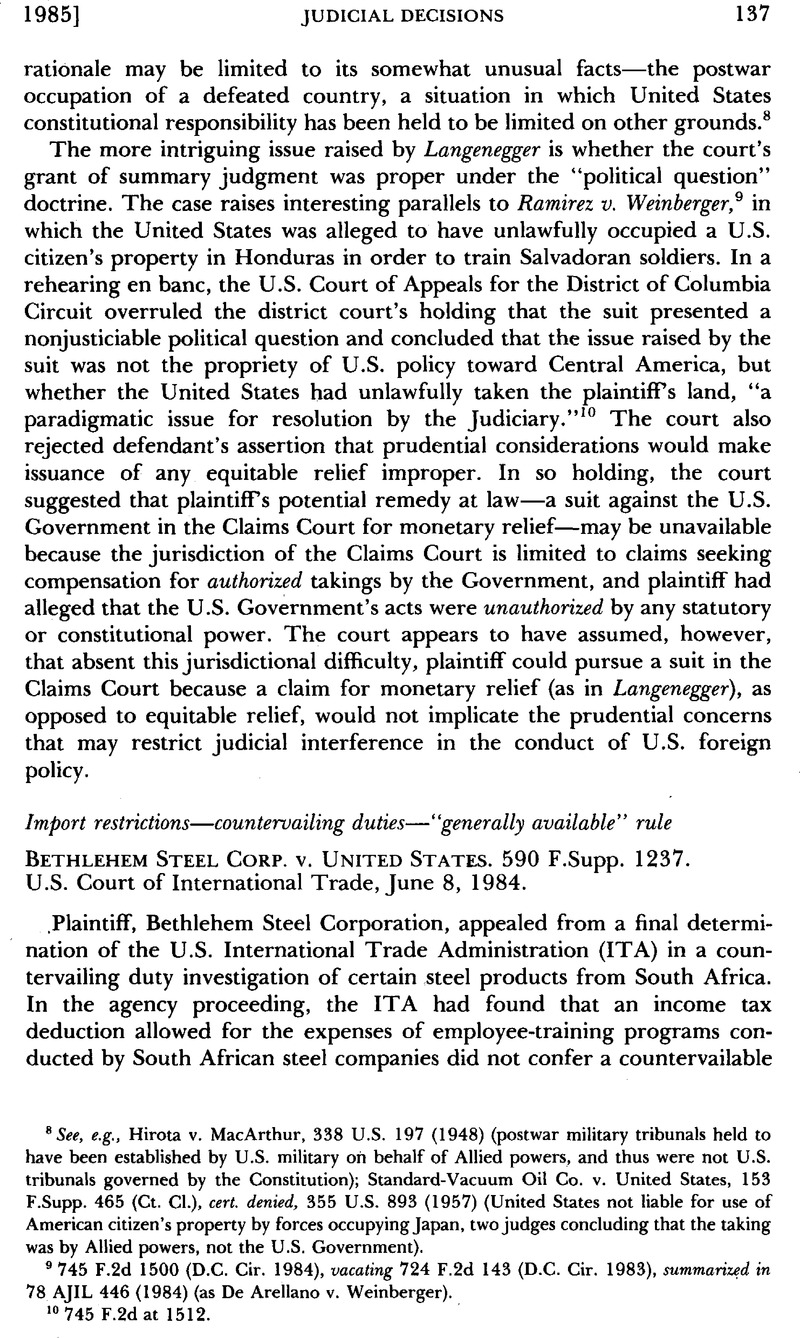No CrossRef data available.
Published online by Cambridge University Press: 23 March 2017

1 See 47 Fed. Reg. 39,379, 39,381–82 (1982).
2 U.S. law distinguishes between “export” subsidies, which are specifically designed to promote exports, and “domestic” subsidies, which are benefits to a firm’s general manufacture or production. See §771(5) of the Trade Agreements Act of 1979, 19 U.S.C. §1677(5). While export subsidies are always countervailable, domestic subsidies are countervailable only under certain circumstances.
3 590 F.Supp. 1237, 1239.
4 id.
5 Section 771(5)(b) of the Trade Agreements Act of 1979, 19 U.S.C. §1677(5)(B).
6 In Carlisle Tire & Rubber Co. v. United States, 564 F.Supp. 834 (Ct. Int’l Trade 1983) (per Maletz, J.), the court approved the generally available rule and noted that without such a rule “almost every import entering the stream of American commerce [could] be countervailed.” Id. at 838.